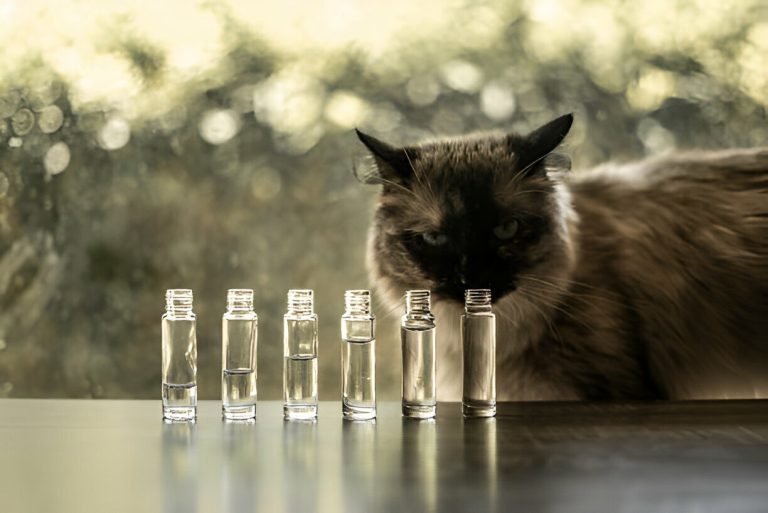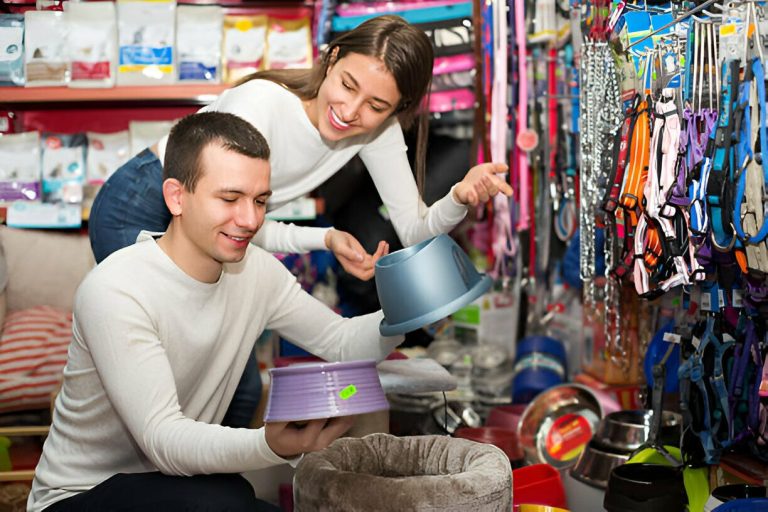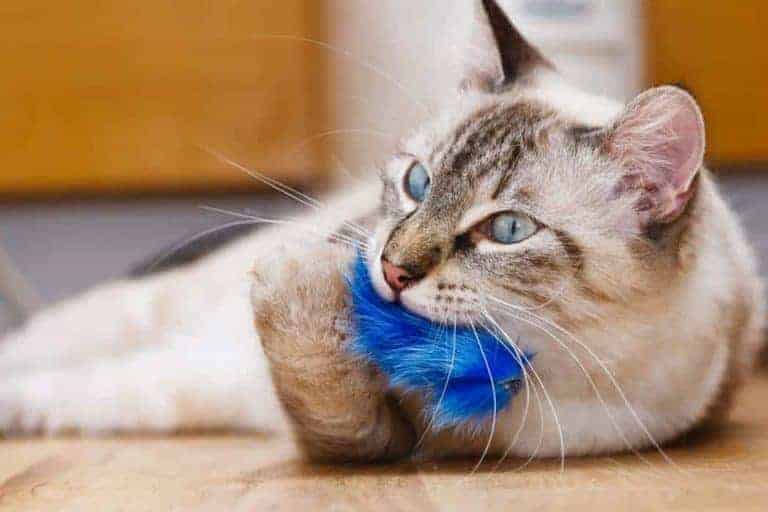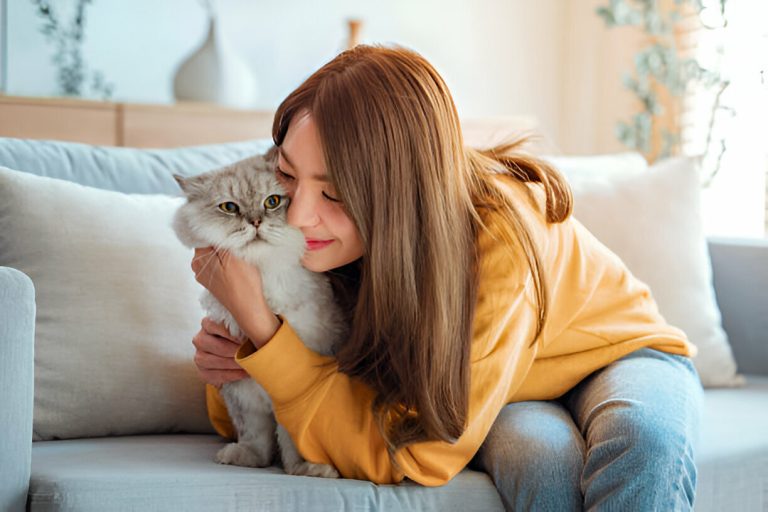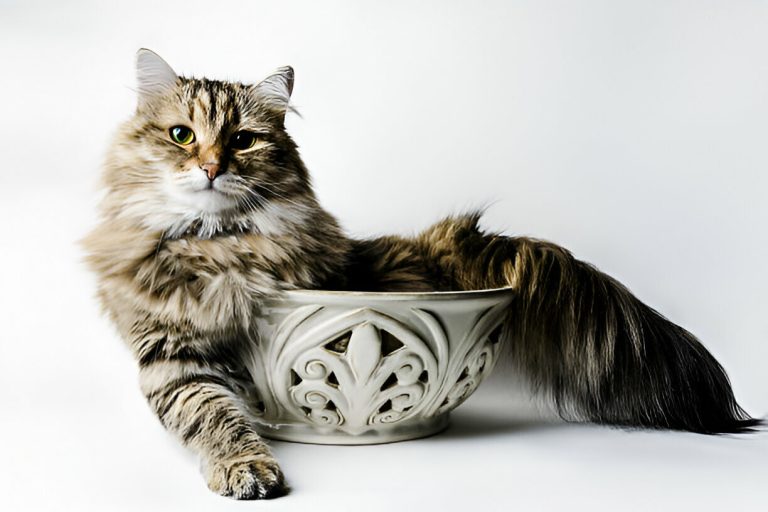Cat Cuisine: Homemade Recipes Tailored for Your Feline Friend
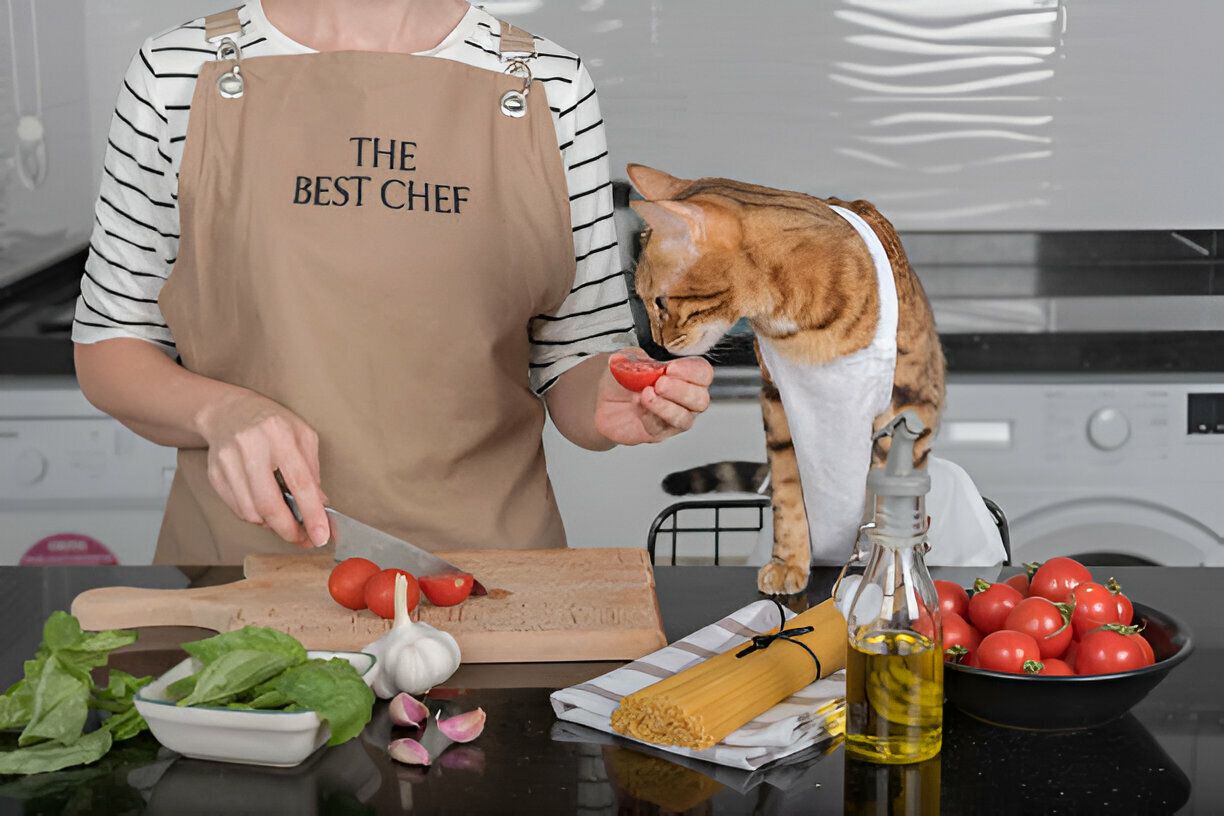
Homemade cat food recipes offer a personalized approach to feline nutrition, allowing cat owners to tailor meals to their pet’s specific dietary needs and preferences. By preparing food at home, you have complete control over the ingredients, ensuring that your cat receives a balanced diet free from artificial additives and preservatives.
When creating homemade recipes for your feline friend, it’s essential to consult with a veterinarian or feline nutritionist to ensure that the meals meet your cat’s nutritional requirements. Cats are obligate carnivores, meaning that they require a high amount of animal protein in their diet. Homemade cat food recipes typically include a combination of lean meats, such as chicken or turkey, along with organs like liver or heart, which provide essential nutrients.
In addition to protein, cats also require a balance of other nutrients, including fatty acids, vitamins, and minerals. Incorporating ingredients like fish oil, calcium supplements, and vitamin supplements can help ensure that your homemade cat food recipe is nutritionally complete. It’s also important to note that cats have specific requirements for certain amino acids, such as taurine, which is essential for heart and eye health.
When preparing homemade cat food, it’s crucial to maintain proper food safety practices. This includes handling raw meats carefully, storing food properly, and avoiding ingredients that are toxic to cats, such as onions, garlic, and grapes. By following a well-researched recipe and maintaining strict hygiene standards, you can provide your feline friend with a delicious and nutritious meal that caters to their unique needs.
As we delve further into the world of homemade cat food recipes, we’ll explore the benefits of a homemade diet, share some tried-and-true recipes, and discuss the importance of working closely with your veterinarian to ensure that your cat’s nutritional needs are met. Whether you have a picky eater or a cat with specific health concerns, homemade cat food recipes offer a way to provide your feline companion with a diet that is both delicious and tailored to their individual needs.
Key Takeaways
-
Homemade cat food recipes can be tailored to your feline friend’s specific dietary needs and preferences, ensuring they receive optimal nutrition.
-
When preparing homemade cat food, it’s crucial to consult with a veterinarian or feline nutritionist to ensure the recipe is balanced and meets all of your cat’s nutritional requirements.
-
Essential ingredients in a homemade cat food recipe include high-quality protein sources (such as cooked chicken, turkey, or fish), carbohydrates (like rice or sweet potatoes), and healthy fats (such as fish oil or flaxseed oil).
-
Supplements, such as taurine, calcium, and vitamin E, may need to be added to homemade cat food recipes to prevent nutritional deficiencies and support overall health.
-
Proper food safety practices, including thorough cooking of meats and safe storage of leftovers, are essential when preparing homemade cat food to prevent foodborne illnesses.
-
Transitioning your cat to a homemade diet should be done gradually over the course of several days to allow their digestive system to adjust and minimize the risk of gastrointestinal upset.
- Homemade cat food recipes can be tailored to your cat’s specific nutritional needs and preferences
- Making your own cat food allows you to control the quality and freshness of the ingredients
- Key ingredients in homemade cat food include protein sources like cooked chicken or fish, carbohydrates like rice or oats, and supplements like taurine and calcium
- It’s important to work with a veterinarian or feline nutritionist to ensure your homemade cat food recipe is complete and balanced
- Proper food safety and storage practices are crucial when preparing homemade cat food to prevent foodborne illness
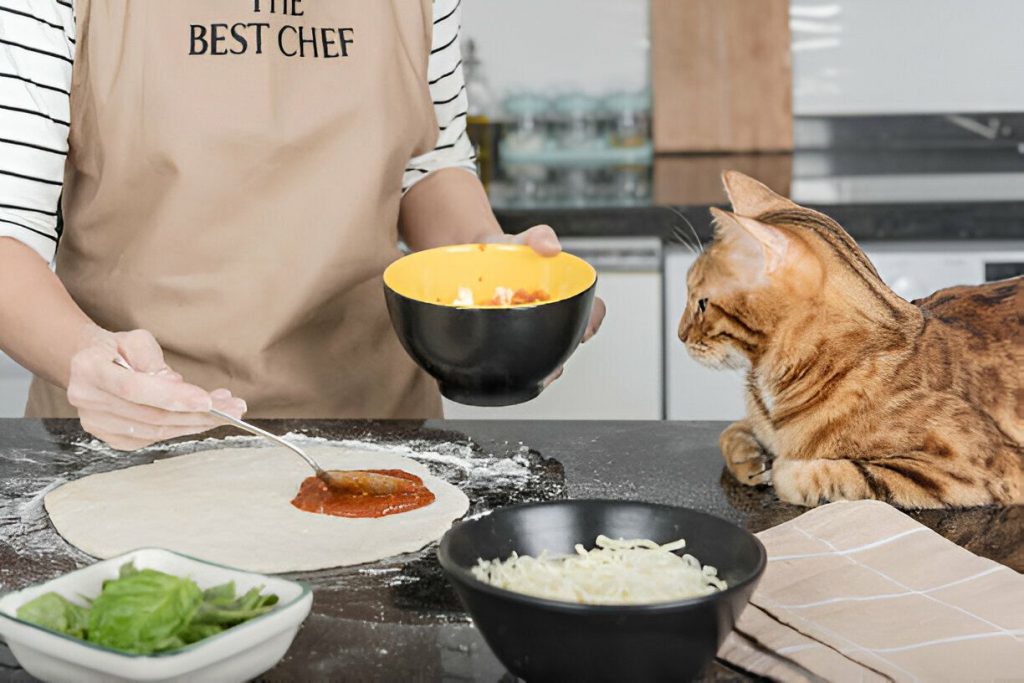
How to Create Nutritious Homemade Cat Food Recipes for Your Feline Friend
Homemade cat food recipes, also known as home-prepared or raw cat food diets, are meals that are made from scratch using fresh, whole ingredients. These recipes often include a combination of protein sources like meat or fish, carbohydrates such as rice or potatoes, and various supplements to ensure the diet is complete and balanced.
Many cat owners are turning to homemade cat food recipes as a way to have more control over their feline friend’s diet. By preparing meals at home, you can choose high-quality, fresh ingredients and tailor the recipes to your cat’s specific nutritional needs and preferences. This is especially beneficial for cats with food allergies, sensitivities, or other health issues that require a special diet.
Is it safe to make homemade cat food?
Yes, it is generally safe to make homemade cat food as long as you follow a balanced recipe that meets your cat’s nutritional needs. It’s essential to consult with a veterinarian or a feline nutritionist to ensure that the homemade diet you provide is complete and balanced.
When preparing homemade cat food, it’s crucial to use high-quality, fresh ingredients and to avoid any foods that are toxic to cats, such as onions, garlic, and chocolate. Proper food handling and storage practices should also be followed to minimize the risk of food-borne illnesses.
What are the benefits of feeding my cat homemade food?
Homemade cat food offers several benefits, including the ability to control the quality and source of ingredients, tailoring the diet to your cat’s specific needs, and avoiding artificial preservatives and fillers found in some commercial cat foods. By preparing your cat’s meals at home, you can ensure that they are getting a fresh, wholesome diet.
Additionally, homemade cat food can be particularly beneficial for cats with specific health issues, such as allergies or digestive problems, as you can easily adjust the ingredients to accommodate their needs. It can also be a great way to bond with your feline companion and show them how much you care about their well-being.
What ingredients should I include in a homemade cat food recipe?
A balanced homemade cat food recipe should include a variety of ingredients to ensure that your cat receives all the necessary nutrients. The primary components of a feline diet should be high-quality animal protein sources, such as chicken, turkey, beef, or fish. These proteins should make up the majority of the recipe.
In addition to protein, cats also require healthy fats, such as those found in fish oil or chicken fat, to maintain skin and coat health. Small amounts of cooked, plain carbohydrates, such as rice or potato, can be included as a source of energy. Essential vitamins and minerals, such as taurine, calcium, and vitamin E, should also be incorporated into the recipe to ensure a complete and balanced diet.
How much homemade food should I feed my cat?
The amount of homemade food you should feed your cat depends on several factors, including their age, weight, activity level, and overall health status. As a general guideline, adult cats typically require about 20-30 calories per pound of body weight per day, divided into two or more meals.
It’s important to monitor your cat’s weight and body condition regularly and adjust the portion sizes accordingly. Overfeeding can lead to obesity, while underfeeding can result in nutritional deficiencies. If you’re unsure about how much to feed your cat, consult with your veterinarian, who can provide personalized recommendations based on your cat’s individual needs.
How often should I feed my cat homemade food?
Cats are natural grazers and benefit from eating smaller, more frequent meals throughout the day. When feeding homemade cat food, it’s recommended to offer meals at least twice a day, with some cats preferring three or more smaller meals.
Establishing a consistent feeding schedule can help regulate your cat’s digestion and energy levels. If you have a kitten or a senior cat, they may require more frequent meals to meet their unique nutritional needs. Always ensure that fresh, clean water is available for your cat at all times.
Can I mix homemade cat food with commercial cat food?
Yes, you can mix homemade cat food with commercial cat food as a way to transition your cat to a homemade diet or to provide variety in their meals. When introducing homemade food, it’s best to do so gradually to allow your cat’s digestive system to adjust and to minimize the risk of gastrointestinal upset.
Start by replacing a small portion of their commercial food with homemade food and gradually increase the proportion of homemade food over the course of a week or two. Keep an eye on your cat’s appetite, energy levels, and stool consistency during the transition period, and consult with your veterinarian if you notice any concerns.
How long can I store homemade cat food?
Homemade cat food should be treated similarly to human food in terms of storage and shelf life. Freshly prepared cat food can be stored in the refrigerator for up to 4 days, ensuring that it is kept in an airtight container to maintain freshness and prevent contamination.
If you wish to prepare larger batches of homemade cat food, you can portion the food into individual serving sizes and freeze them for up to 2-3 months. When ready to use, thaw the frozen food in the refrigerator overnight and reheat it to body temperature before serving. Avoid refreezing previously thawed homemade cat food.
Are there any ingredients I should avoid in homemade cat food?
Yes, there are several ingredients that should be avoided when preparing homemade cat food, as they can be harmful or even toxic to cats. Some common ingredients to avoid include onions, garlic, chives, leeks, chocolate, caffeine, grapes, raisins, and artificial sweeteners like xylitol.
Additionally, raw meat, eggs, and fish can potentially harbor harmful bacteria, so it’s essential to cook these ingredients thoroughly before incorporating them into your cat’s homemade diet. When in doubt, always consult with your veterinarian or a feline nutritionist to ensure that the ingredients you are using are safe and appropriate for your cat.
Do I need to supplement homemade cat food with vitamins and minerals?
In most cases, a well-balanced homemade cat food recipe that includes a variety of high-quality ingredients should provide your cat with all the necessary vitamins and minerals. However, it’s essential to follow a recipe that has been developed or reviewed by a veterinarian or feline nutritionist to ensure that it meets your cat’s nutritional requirements.
If you are unsure about the completeness of your homemade cat food recipe, you can consider adding a commercially available vitamin and mineral supplement designed specifically for cats. These supplements can help fill in any potential nutritional gaps and ensure that your cat is receiving all the essential nutrients they need. Always consult with your veterinarian before adding any supplements to your cat’s diet.
Can cats with health issues benefit from a homemade diet?
Yes, cats with certain health issues may benefit from a homemade diet tailored to their specific needs. For example, cats with food allergies or sensitivities can thrive on a homemade diet that excludes the offending ingredients, while cats with digestive issues may benefit from a highly digestible, low-residue homemade diet.
However, it’s crucial to work closely with your veterinarian or a veterinary nutritionist when designing a homemade diet for a cat with health issues. They can help you develop a recipe that addresses your cat’s specific health concerns while ensuring that all their nutritional needs are met. Regular check-ups and monitoring are also essential to ensure that the homemade diet is having the desired effect on your cat’s health.
Final Thoughts
Crafting homemade cat food recipes is a fantastic way to ensure your feline friend receives a balanced, nutritious diet tailored to their specific needs. By understanding the essential components of a healthy cat diet and working closely with your veterinarian, you can create meals that support your cat’s overall well-being. Remember to prioritize high-quality protein sources, essential fatty acids, and proper nutrient balance when developing your homemade cat food recipe.
While the process may seem daunting initially, with proper research and guidance, you can master the art of creating delicious and healthy homemade meals for your cat. Embracing the world of cat cuisine not only strengthens the bond between you and your feline companion but also gives you peace of mind knowing that you are providing them with the best possible nutrition. So, don your apron, gather your ingredients, and embark on a culinary adventure that will have your cat purring with delight!

